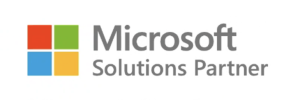This course covers methods and practices to implement data engineering solutions by using Microsoft Fabric. Students will learn how to design and develop effective data loading patterns, data architectures, and orchestration processes. Objectives for this course include ingesting and transforming data and securing, managing, and monitoring data engineering solutions. This course is designed for experienced data professionals skilled at data integration and orchestration, such as those with the DP-203: Azure Data Engineer certification.
Apart from public, instructor-led classes, we also offer private in-house trainings for organizations based on their needs. Call us at +852 2116 3328 or email us at [email protected] for more details.

1. Ingest data with Microsoft Fabric
Explore how Microsoft Fabric enables you to ingest and orchestrate data from various sources (such as files, databases, or web services) through dataflows, notebooks, and pipelines.
Click here to know more
2. Implement a Lakehouse with Microsoft Fabric
This learning path introduces the foundational components of implementing a data lakehouse with Microsoft Fabric.
Click here to know more
3. Implement Real-Time Intelligence with Microsoft Fabric
Real-time intelligence in Microsoft Fabric enables analysis of streaming events in real or near-real time.
Click here to know more
4. Implement a data warehouse with Microsoft Fabric
Explore the data warehousing process and learn how to load, monitor, secure, and query a warehouse in Microsoft Fabric.
Click here to know more
5. Manage a Microsoft Fabric environment
Microsoft Fabric is a Software-as-a-Service platform for data analytics. Learn how to manage your environment through Continuous Integration/Continuous Deployment (CI/CD), monitoring, and security.
Click here to know more
This audience for this course is data professionals with experience in data extraction, transformation, and loading. DP-700 is designed for professionals who need to create and deploy data engineering solutions using Microsoft Fabric for enterprise-scale data analytics. Learners should also have experience at manipulating and transforming data with one of the following programming languages: Structured Query Language (SQL), PySpark, or Kusto Query Language (KQL).
Please review the prerequisites listed for each module in the course content and click on the provided links for more information.